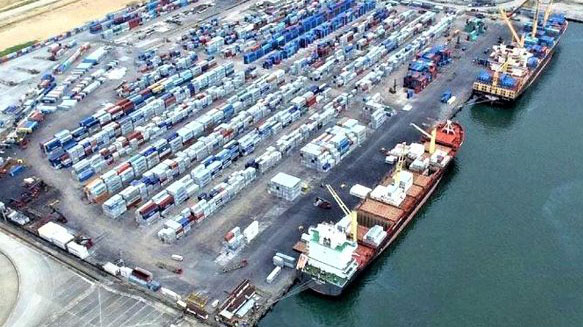The Lagos Chamber of Commerce and Industry (LCCI) has called on the Federal Government to implement comprehensive policy reforms to revive Nigeria’s printing and publishing industry, valued at over N300 billion annually.
At a seminar organised by the LCCI Printing, Publishing and Allied Group in Lagos, industry stakeholders urged the government to prioritise local content in printing contracts and address import duties that make local production uncompetitive.
The President and Chairman of Council, LCCI, Gabriel Idahosa, noted that the printing industry plays a vital role in national development, supporting education, packaging, and governance through security documents.
“From textbooks that educate our children, to packaging that drives our consumer industries, to security documents that support governance, printing remains central to national progress,” Idahosa said, adding, “Conservative estimates place its contribution at over N300 billion yearly, employing hundreds of thousands directly and indirectly.”
He lamented that over 80 per cent of printing inputs — including paper, ink, and plates are imported, exposing operators to foreign exchange volatility and high production costs. He urged the government to revive dormant paper mills in Iwopin, Oku Iboku and Jebba to strengthen local capacity and reduce dependency on imports.
Chairman of the Printing, Publishing and Allied Group, Gabriel Okonkwo, decried tariff inconsistencies that favour imported finished books over locally produced ones. He disclosed that while imported books attract zero tariffs, raw materials such as paper are heavily taxed.
“Foreign printers from India and China offer 120-day credit terms, but local printers must pay for imported paper two months before it arrives,” Okonkwo said. “We have the capacity to print all books used in Nigeria, but the government must create a level playing field.”
In his keynote address delivered by Precious Ejugh, the Marketing Manager, Southern Region of Yaliam Press, the Chairman/CEO of Yaliam Press, Alhaji Yahaya Amfani, commended President Bola Tinubu’s Nigerian First Economic Policy, but called for stricter enforcement across all ministries and agencies.
“About two years ago, some government agencies gave Nigerian printers a trial on jobs previously handled abroad and got 100 per cent satisfaction,” Amfani noted. “That was a welcome development, but we need full implementation across all levels.”
He proposed the creation of a printing and publishing growth fund supported by development partners and financial institutions to provide equipment grants and single-digit interest loans. He also appealed for unity among members of the Chartered Institute of Professional Printers of Nigeria (CIPPON), urging them to resolve internal disputes and strengthen the body’s collective voice.
“I call on the Federal Ministry of Information and National Orientation to help bring Nigerian printers together,” he said. “CIPPON members should set aside individual differences and work towards a unified, stronger institution.”
The Vice President of LCCI and Managing Director/CEO of FAE Limited, Princess Layo Bakare Okeowo, cautioned against the uncritical implementation of digitalisation policies without assessing their impact on the printing industry.
“The Federal Government has said all parastatals will go digital by December. But do we have the capacity? Many rural communities still lack Internet connectivity,” she said. “We’re not against digitalisation, but one industry should not be sacrificed for another, especially when we’re not ready.”
Okeowo, who has spent 45 years in the paper business, lamented Nigeria’s weak paper manufacturing base, noting that the country has only about six paper mills compared to Egypt’s 25. She also highlighted the economic potential of waste paper recycling, saying, “Paper is gold. Kenaf, bamboo, and even textile materials can be recycled into paper. The raw materials are here — what we need are supportive policies.”
Representing the Lagos State Commissioner for Information and Strategy, Gbenga Omotoso, the Deputy Director of Public Affairs, Remilekun Oladeinde, reaffirmed the state government’s commitment to promoting local enterprise under the THEMES Plus agenda.
“Governor Babajide Sanwo-Olu’s administration continues to promote policies that enable enterprise and build business confidence,” she said. “The Ministry of Information and Strategy has continued to partner with local printing firms, with deliberate preference for Nigerian capacity where standards are met.”
Key recommendations from the seminar include the recognition of printing and publishing as a formal industry in national policy; reduction of import duties on paper, ink, and machinery; stronger copyright and intellectual property protection; establishment of a growth fund for the sector; and full enforcement of the Nigerian First Economic Policy.
Participants also called for the revival of dormant paper mills, the establishment of new ones, and unity within CIPPON to strengthen industry advocacy.






